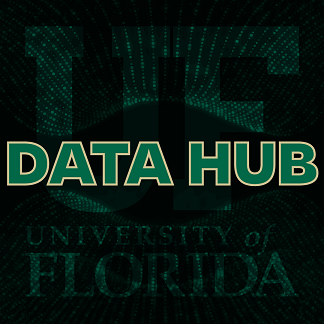As the University of Florida continues on its digital transformation path, a key initial phase has begun with the implementation of the Data Hub. Powered by the Snowflake software, the behind-the-scenes tool is providing UF with a more efficient and organized way to store, share, and learn from our data. A Data Hub is a system for data integration where data from multiple sources and with various requirements is reconfigured for efficient storage, access, and delivery of information. The hub can be accessed by many tools (i.e., Enterprise Analytics) for reporting, analytics, data engineering, and data science.
UF Information Technology (UFIT) recently collaborated with UF Finance and Accounting to complete the initial phase of moving financial reports into the Data Hub. Staff who work in UF’s financial and accounting environment saw significant performance improvements. One report showed a 99.7% increase in speed to compute over the previous data warehouse product.
“We’ve seen huge improvements in the run times of many of the reports we run regularly, which makes our jobs so much easier,” said Adam Kadlec, accounting specialist in the Division of Student Life. “Reports that were taking several minutes are generated and ready for me to use in seconds now.”
The Data Hub service enables the UF community to mobilize their data queries in such a way that makes it easier to use and share that data. UFIT Director Jim Freymann recently summed up the enhancements to the university’s data mining and reporting environment:
“We’re excited to continue building upon the success of this implementation. This tool and others coming are crucial elements of UF’s data strategy to move the university forward in predictive analytics and data-driven decision-making. The Data Hub environment will also actively support the university’s increasing use of AI applications with its data.”
The Data Hub will replace UF’s existing warehouse and data shares within the next five years. UFIT is in the initial phase of deploying the service. The Data Hub as a campus-wide service will become more widely available over the next few years, with training options for new service users.





